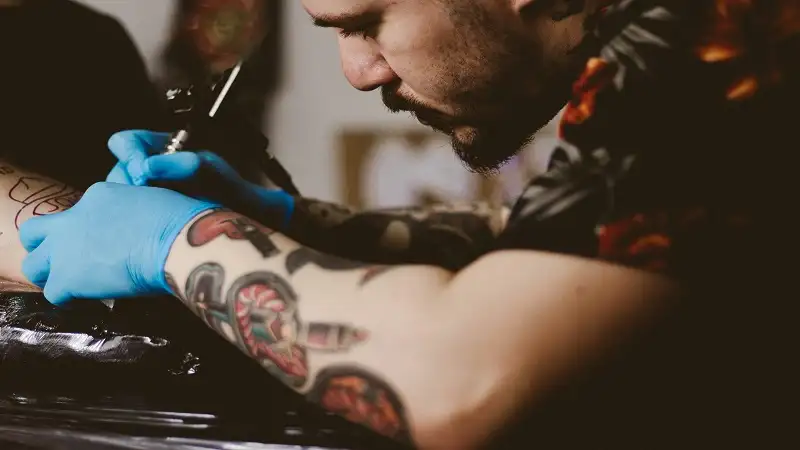Getting a new tattoo is an exciting experience, but it comes with responsibilities, especially when it comes to taking care of your skin during the healing process. One common concern among tattoo enthusiasts is how to maintain their fitness routine without jeopardizing the integrity of their new ink. In this comprehensive guide, we’ll explore the best practices for working out after getting a tattoo, ensuring both your fitness goals and your tattoo’s longevity are well taken care of.
Introduction to Working Out After Getting a Tattoo
After getting inked, it’s essential to understand that your tattoo is essentially an open wound that requires proper care and attention. Engaging in rigorous physical activities too soon can lead to complications such as infections, fading, or even distortion of the tattoo design.
Understanding the Healing Process
Importance of Proper Healing
The healing process is crucial for the overall appearance and longevity of your tattoo. Rushing into intense workouts can disrupt this process, leading to undesirable outcomes.
Different Stages of Tattoo Healing
Tattoo healing typically occurs in several stages, including inflammation, scabbing, and peeling. Each stage requires specific care to ensure optimal healing and vibrant colors.
Precautions Before Starting Workouts
Consultation with Your Tattoo Artist
Before hitting the gym, consult with your tattoo artist to understand any specific aftercare instructions tailored to your tattoo. They can provide valuable insights into when it’s safe to resume physical activities.
Proper Aftercare Instructions
Follow the aftercare instructions provided by your tattoo artist diligently. This includes avoiding direct sunlight, keeping the tattoo clean and moisturized, and refraining from picking at scabs.
Best Practices for Working Out After a Tattoo
Choosing the Right Clothing
Opt for loose-fitting clothing that minimizes friction and allows your tattoo to breathe during workouts. Tight clothing can rub against the tattoo, causing irritation and potential damage.
Avoiding Direct Contact with Equipment
Be mindful of your tattoo’s placement and avoid direct contact with gym equipment, especially if it’s still in the early stages of healing. Consider using protective barriers such as bandages or wraps for added precaution.
Staying Hydrated
Proper hydration is essential for overall skin health, including tattooed areas. Drink plenty of water before, during, and after your workouts to keep your skin hydrated and promote healing.
Types of Workouts Suitable for Post-Tattoo Period
Low-Impact Exercises
Opt for low-impact exercises such as walking, cycling, or swimming to minimize strain on the tattooed area. These activities provide a gentle workout while reducing the risk of irritation or damage.
Stretching and Yoga
Incorporate stretching and yoga into your routine to improve flexibility and promote relaxation. These gentle exercises are beneficial for maintaining mobility without putting excessive pressure on the tattoo.
Light Cardiovascular Activities
Engage in light cardiovascular activities such as brisk walking or elliptical training to get your heart rate up without overexerting yourself. These exercises promote circulation, which can aid in the healing process.
Signs to Watch Out For During Workouts
Pain or Discomfort
Listen to your body and stop exercising if you experience any pain or discomfort around the tattooed area. Pushing through the pain can lead to complications and prolong the healing process.
Excessive Sweating
Excessive sweating can irritate the tattooed skin and increase the risk of infection. Wipe away sweat gently and avoid covering the tattoo with clothing or accessories that trap moisture.
Redness or Inflammation
Monitor the tattooed area for any signs of redness or inflammation during and after workouts. These could be early indicators of irritation or infection, requiring prompt attention.
Post-Workout Tattoo Care
Gentle Cleansing
After your workout, gently cleanse the tattooed area with mild soap and lukewarm water to remove sweat and bacteria. Avoid scrubbing or rubbing the tattoo, as this can irritate.
Moisturizing
Apply a thin layer of fragrance-free moisturizer to the tattooed skin to keep it hydrated and supple. Choose a product specifically formulated for sensitive skin to avoid potential reactions.
Protecting from Sun Exposure
Limit exposure to direct sunlight, especially during peak hours when UV radiation is strongest. Use a broad-spectrum sunscreen with SPF 30 or higher to protect your tattoo from fading and discoloration.
Common Mistakes to Avoid
Ignoring Pain Signals
Pain or discomfort around the tattooed area is your body’s way of signaling that something isn’t right. Listen to these signals and adjust your workout intensity or routine accordingly.
Using Harsh Chemicals on the Tattoo
Avoid using harsh chemicals such as alcohol or hydrogen peroxide on the tattoo, as they can dry out the skin and impede the healing process. Stick to gentle, fragrance-free products recommended by your tattoo artist.
Neglecting Hygiene
Maintain good hygiene practices, especially when sweating during workouts. Shower promptly after exercising and avoid sharing towels or equipment to reduce the risk of infection.
Conclusion
Working out after getting a tattoo requires careful consideration and adherence to proper aftercare guidelines. By following the advice provided in this guide, you can safely maintain your fitness routine while ensuring optimal healing and longevity for your new ink.
